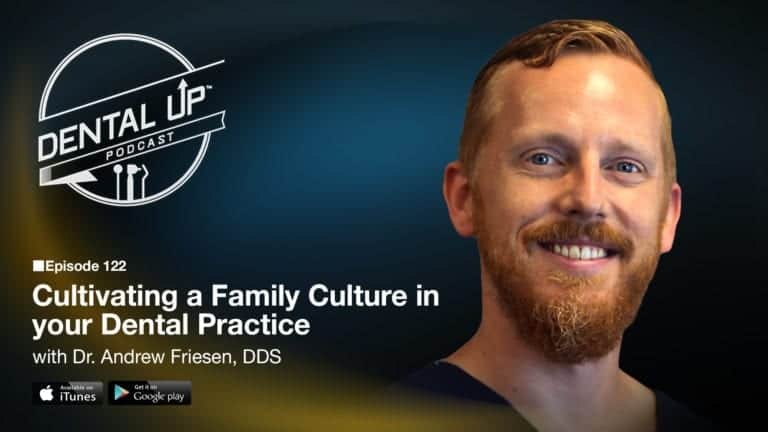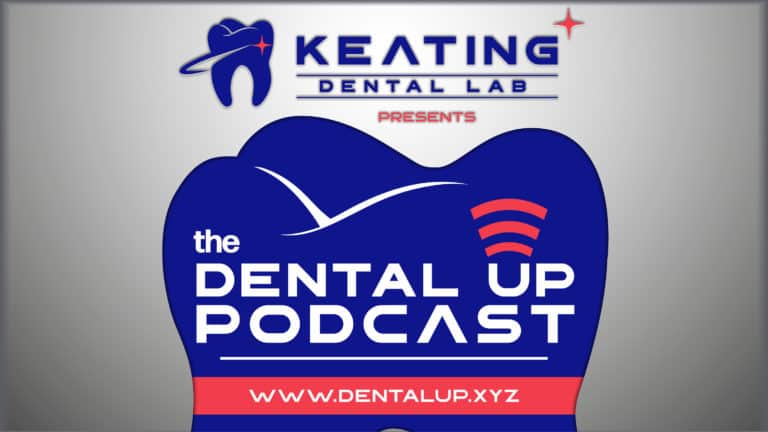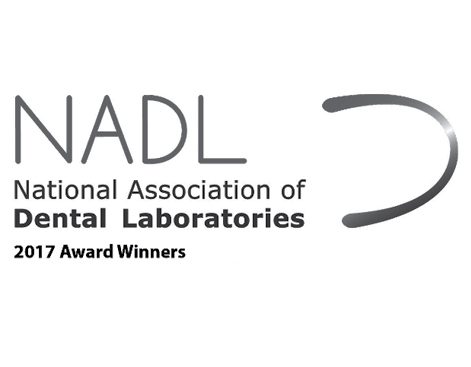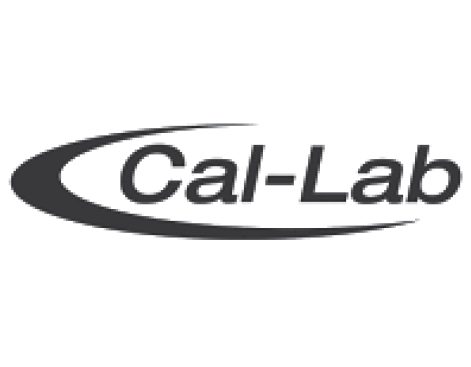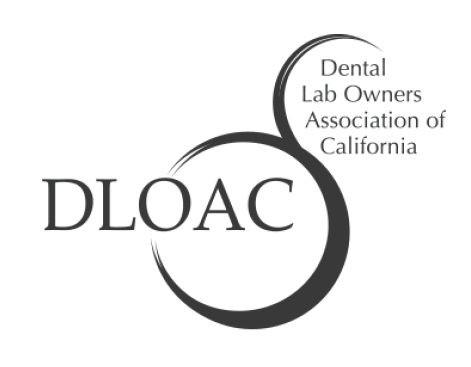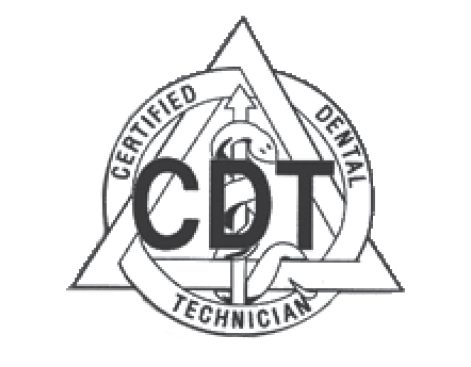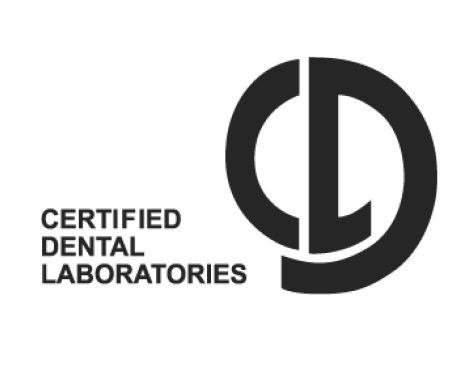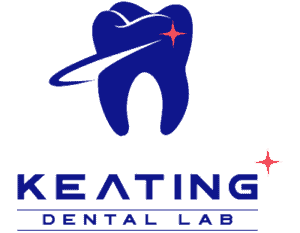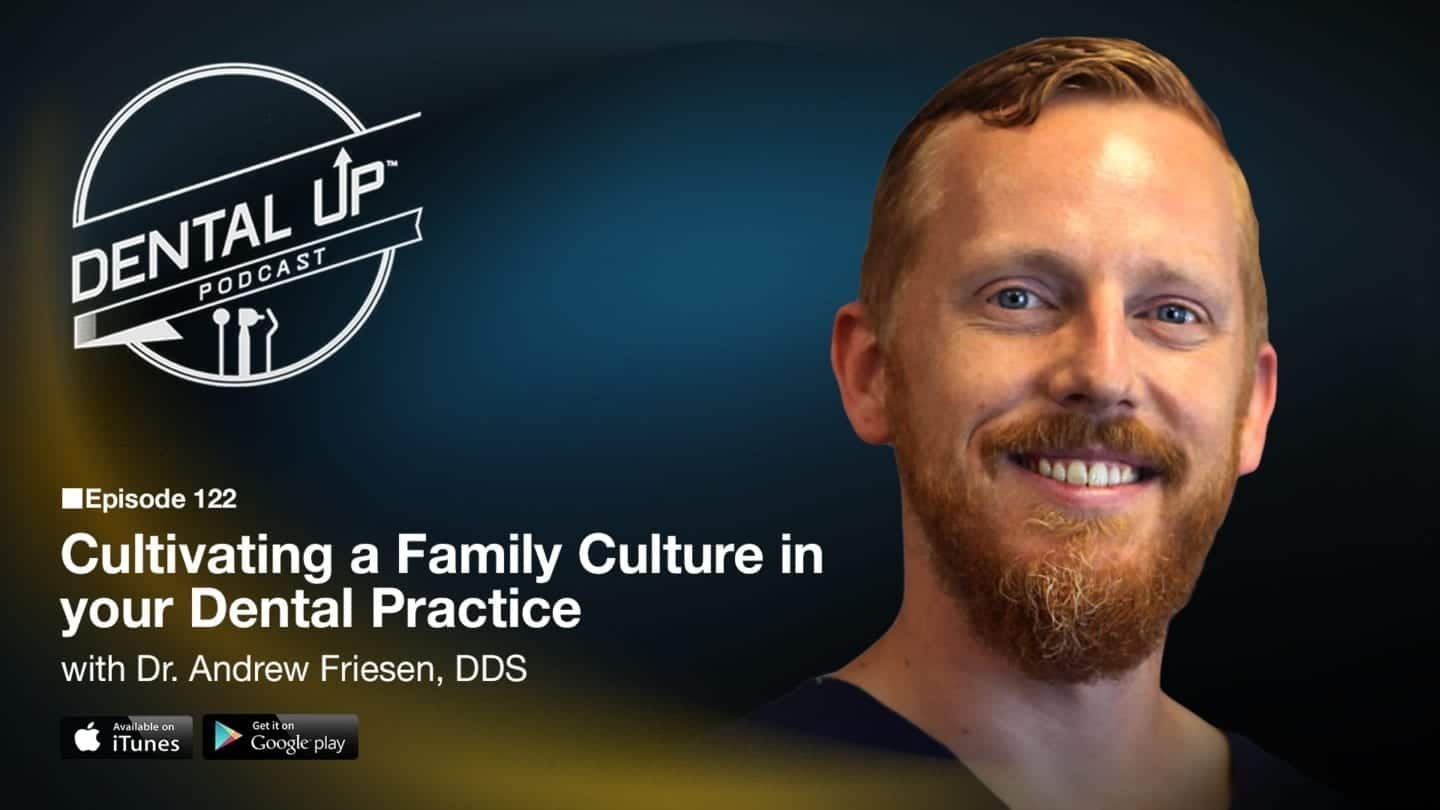
![]()
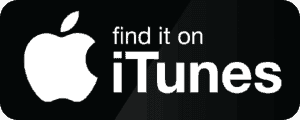
![]()

Our guest this week on the Dental Up Podcast is Dr. Andrew Friesen, DDS. Dr. Friesen is a graduate from the University of Nebraska’s College of Dentistry and is currently practicing in Newton, Kansas at Tippin Dental Group. He chats with us about creating a family culture in your practice and how he was guided to pursue a dental career by a friend of the family at a young age. We talk about his experiences abroad when he lived in Japan and what influenced him to change his field of studies.
[bg_collapse view=”link” expand_text=”View Full Transcript” collapse_text=”Hide Transcript” ]
Host: Ladies and gentlemen, this is the Dental Up podcast, brought to you by Keating Dental Lab, a full-service, award-winning dental laboratory. Each week, you’ll learn tips and techniques from real-world dentists. Bringing you in-depth interviews, motivating stories, current events and sports, here’s your host, Shaun Keating.
Shaun Keating: Hey everyone, Shaun here. Welcome to another episode of the Dental Up podcast. Our guest this week is a graduate from the University of Nebraska’s College of Dentistry. Currently practicing from Newton, Kansas, please welcome Dr. Andrew Friesen, DDS. How’s it going, Dr. Friesen?
Dr. Friesen: It’s very good, Shaun. Thank you so much for having me and please, call me Andy.
Shaun Keating: Andy, you’re the man, dude, and I can’t thank you enough for taking the time out of your busy practice today. And I just thank you for all the work you’re sending us to Keating Dental Lab here. Man, we really appreciate it. So hey, tell me a little bit, I like to start about … a little bit about sports and I’m a big Corn Husker fan since a little kid. So you like the Corn Huskers growing up there or-
Dr. Friesen: That’s a great question, Shaun. I didn’t know much about the Corn Huskers until I went there, to be honest.
Shaun Keating: Oh, you’re kidding.
Dr. Friesen: No, not at all and I love sports too. I was much more of a basketball fan growing up and the kid shooting hoops by himself for hours on end, that was me. And I still love basketball. I don’t play it anymore but the Huskers, [inaudible 00:01:39] I learned a lot about football. I learned how the stadium in Lincoln, Nebraska becomes the third-largest city in the whole state on game day.
Shaun Keating: Can you believe that?
Dr. Friesen: [crosstalk 00:01:49] if you heard that stat before.
Shaun Keating: No.
Dr. Friesen: It’s crazy, pretty intense
Shaun Keating: I bet the town closes down and it’s kind of where legends are made. Even the high school teams there in certain little cities there and across Texas and a lot of the states, other than California. I mean, the whole town shuts down and they go watch the local high school team and then … such a passion for football. But I always just remember the Corn Huskers back with the dude, the coach. I can’t even remember him but he went on to be a senator, I think, or a congressman but-
Dr. Friesen: I want to say it’s Tom Osborne.
Shaun Keating: Tom Osborne. That’s it, man, and he just held … he kind of reminded me of Tom Landry of the Dallas Cowboys back in the day. Just … he’s a very professional but man, he just had that team. Kind of like Saban with the Alabama’s team. They had a run there for a while in the 70s and 80s and I’m a big wishbone guy. So I always coached my boys, I have two boys. I know you have two little girls and a boy too, so and that’s awesome. But get that boy … man, almost too with the kids nowadays, after going through all I did and after what my went through in football, lot of aches and pains and those concussions and stuff. Who knows what that really is going to leave us with? I’m a little … I keep trying to bite my ear every once in a while and I’m like, “Maybe that’s from all the hits in the head from football.”
Dr. Friesen: Oh man. [inaudible 00:03:08] tell you.
Shaun Keating: But you think it’s the world at the time. I remember praying to God every night before games, “Please let me make touchdowns. Let us win.” And it was like the most important thing in the world, you thought, at the time. And years later, no one can remember any … how many touchdowns you got, how many wins you got. It’s just so-
Dr. Friesen: That’s right.
Shaun Keating: Weird how you get wired that way of, “Win, win.” And football and competition. Now, but the Corn Huskers, man, I just love watching them run that wishbone and I ran the same offense too. I did it because kind of easy four or five plays you know?
Dr. Friesen: Yeah. There’s a lot of people excited about the new coach, Scott Frost. Kind of a throwback to those days of Tom Osborne there. They’re really excited about it. Nebraska’s buzzing and waiting for the new football season to start.
Shaun Keating: Oh, I hope they do great. I hope they’re in the mix for the national championship because it’s been while and the fans there in Nebraska, man, they are so loyal to that team and it’s been a while that they’ve had some good prominence in the league there for little bit. But no, good for you, man, and so tell me a little bit about … well, tell me first off, let’s Dental Up now. So why did you get into dentistry and at what point did you think, “I want to be a dentist.”
Dr. Friesen: Oh man, that’s a good question, Shaun. I did not have any idea that I wanted to be a dentist until a little bit later. So I need to back up. Can I tell you a quick story?
Shaun Keating: Sure.
Dr. Friesen: So I didn’t grow up in the states. I was born and raised in Japan, born in Tokyo. My … isn’t that crazy? My parents were Christian missionaries for 18 years in Tokyo, in Japan. And so I was raised over there, lived for 15 years in Japan. We moved around a little bit and it came time to come back to the states. My parents were about ready to be done and they had a year to wrap up but they said, “Hey, why don’t you consider going back a year early? So without us.” And so I did. For my junior year of high school, I left my family in Japan and I came to Newton, Kansas, basically, where we lived, just the middle of the country, small town. And I went to this Christian high school called Berean Academy for a couple years. I lived with a dentist and his family and so there’s the first [crosstalk 00:05:31]. This is the first dental connection, now.
Shaun Keating: That’s cool.
Dr. Friesen: And they had five kids and I fit right in as number six. And so fast forward, that was a great year. I learned a lot. I was like … man, it was such an adjustment coming from another culture, basically, to the middle of the country. But I had just finished my first year in college now and I had done digital media, computer graphics, this kind of stuff. And I enjoyed it but I just didn’t really feel like I was creative enough to make it a career. And I remember, vividly, I’m on the back porch of this house with multiple families gathered and this dentist guy that I knew, he’s like a second father to me, RJ [Tippen 00:06:10]. And I told him, “Hey, I don’t really know what I want to do. I don’t really feel like I can continue this major. And he looks at me and he goes, “Why not dentistry?” And you know what I thought in the moment? I didn’t say it, I thought, “No way!” But I respected him too much just to say that, just to say, “No way.” And so I went, “Okay.” You know? Kind of polite, at least.
Shaun Keating: Yeah.
Dr. Friesen: Well, it so happened, my mom was one of his assistants at the time.
Shaun Keating: You’re kidding.
Dr. Friesen: No, no. And so, first step was just go to work with her and I could kind of ride along and see what this whole dental thing is about. And I remember he did a lot of orthodontics. A general dentist but loves orthodontics and he’s done a lot of that. And so, I remember sitting, watching my mom working with this orthodontic patient. It was a kid a little bit younger than me but … and just, I kind of was able to enter in and kind of help put the kid at ease a little bit and kind of crack a few jokes and just put him at ease. And that, I don’t know, I remember thinking-
Shaun Keating: That’s kind of [crosstalk 00:07:15].
Dr. Friesen: I could do this. I could do this. And that was the beginning. And so from there, but it was … really what got me in was people. It was someone that I knew who
I trusted who knew me and his recommendation really changed the course of everything I was doing. I remember that summer then, the thought had been planted. You know how an idea gets stuck in your head and you can’t let go of it?
Shaun Keating: Yeah.
Dr. Friesen: It just kind of keeps on going. And my job that summer was sitting on the back of a mower so I had hours and hours of quiet time and I can’t tell you how much thought and how much prayer went into that decision, but I came back to college my sophomore year, the next year and I dropped all of my art classes, all my color studies, all this stuff. I took chemistry. I took biology. And you know what? I loved it.
Shaun Keating: No kidding.
Dr. Friesen: I loved it. And so, man, it went from there and I was able to finish in four years and had my choice of dental school and I was able to pick Nebraska. And I tell you what, Shaun, it’s been pretty amazing.
Shaun Keating: That’s such a great story, dude. Man, I really love that. I mean, that’s kind of like divine intervention there where you go to a guys house and, “Well, this [inaudible 00:08:26] be your career. You don’t know it yet, Andy, but you’re going to be a dentist and you’re going to be [crosstalk 00:08:29] with Dr. Tippen.” I mean, what a great, great … that’s so cool, man. So tell me a little bit about Nebraska. How was dental school? Any ups and downs? Any good takes [crosstalk 00:08:43].
Dr. Friesen: You know what? It was a great time. I appreciate … one of the things I like about Nebraska is the people and you have a smaller class. I think we had 42 in our class and I had the choice between University of Missouri and Kansas City and Nebraska. And both are excellent, excellent programs but for me, the ones in the city and one is more of an … Lincoln feels more like a small town. And I didn’t know anybody in the city and I was a little afraid to be honest, just being alone and it just felt overwhelming to me. And I had one friend and his wife who, they were in Lincoln. He was a fourth year dental student when I was a first year dental student and it’s amazing the difference that people make. And I trusted him and they, I remember, they housed me when I came to interview and because of that, it started off with the people there and it just kept going. Just really appreciated the faculty and the smaller class sizes and what a quality place. The campus felt … there are the trees, there’s an arboretum. It just felt comfortable, felt like a big small town and I just felt much more at home that way.
Shaun Keating: Unbelievable. What about Buffett, isn’t he out in that area out there in Nebraska somewhere?
Dr. Friesen: Yeah, he’s in Omaha, that’s right.
Shauun Keating: How [crosstalk 00:09:59] far is Omaha from all that?
Dr. Friesen: Omaha is an hour away. Just an hour away.
Shaun Keating: That’s like LA from us, you know?
Dr. Friesen: Yeah.
Shaun Keating: So LA is an hour away or the heart of LA but what a trip, man.
Dr. Friesen: It’s funny though, you get stuck in your circles and I hardly ever went to Omaha at all while I was in Lincoln. You’re just so busy studying, you’re so busy doing stuff and the funny thing is, I met and married a girl from Omaha.
Shaun Keating: Oh, you’re [crosstalk 00:10:21].
Dr. Friesen: And now we go to Omaha more than we go to Lincoln now.
Shaun Keating: No kidding. You guys got some good steaks out there in Omaha, that’s for darn sure.
Dr. Friesen: Oh, delicious. That’s right.
Shaun Keating: I got to quit eating those big old … I get them delivered [inaudible 00:10:34]. It’s like, “Yay, give me the porterhouses and a couple rib-eyes in there.”
Dr. Friesen: That’s my favorite right there, the rib-eye.
Shaun Keating: They’re all corn fed, man. That’s just … that’s so cool, dude. So tell me then, so when you got out of dental school, you started as an associate or you started your own practice? Tell me about your journey there.
Dr. Friesen: Sure. Well, that’s interesting too. So I think I’ve got the same theme of people but, so RJ Tippen, this dentist that encouraged me to try dentistry. It wasn’t long after I started. So [inaudible 00:11:05] the end of my first year, even second year, he had basically been saying, “Hey, I want you to come back and work with me.”
Shaun Keating: No kidding.
Dr. Friesen: I want you to come back and be part of my practice and [inaudible 00:11:14]. So I was, “Yeah, that sounds great.” But really, he was serious. I didn’t know how serious he was. And he, again, like a father just really, he helped me through a lot of the dental stuff. And interesting thing was that my friend, that fourth-year student, that when I was a first year, this is my friend. His name is Joel. He, after he graduated, came to work with RJ, Dr. Tippen. And then when I graduated, I joined him too. I joined him too. So it’s just a … so I’ve got a guy who’s like a second father to me. And Joel, man, he was one of my groomsmen in my wedding. So I get to practice with people that are like family and I was able to have a pretty clear path from the beginning. I think I was one of the first people in my class to commit, to have a contract.
Dr. Friesen: And the practice management guy, I still remember he couldn’t believe, he’s like, “You’re signing something already?” And I think I was a sophomore but it’s like, “No, I know where I want to go.” Just … so it wasn’t quite the normal path because a lot of times, you hardly know what you’re doing until you get done. But man, I had it laid out for me pretty early.
Shaun Keating: You really did, man, from the 11th grade on. You kind of had it … that was like me in the 8th grade. My brother, he was going to dental school and I was the youngest of four boys. And he was like, “Shaun, you’re going to be a dental tech.” Because I was all into sports. I wasn’t the smartest or sharpest tool in the shed. And so I was not really into the school thing but he goes, “Shaun, I’m going to be a dentist. You can be a dental tech and we can work together.” So I kind of [inaudible 00:12:48] he was making my mouth guards for football and stuff [inaudible 00:12:51] set downs. And everyone else had these boil-and-bites and I had this custom mouth guard that I can talk perfectly and the refs would always go, “You got a mouthpiece?” And I’d have to show them because I didn’t have the strap and they made rules, “You got to have the strap to the helmet.” So we kind of finagled that but it’s kind of neat, man, how you kind of knew from an early age and then you’re kind of set even going through dental school that, “Hey, I’ve got a job and everything’s set up with a dude I really respect and love.” And so that’s neat.
Shaun Keating: So what about in your practice? Tell me a little bit about your practice you got. So there’s three practicing dentists? Tell me how many dentists, how many hygienists, what kind of staff you got? Tell me a little bit about that if you could.
Dr. Friesen: Oh yeah, I tell you what, we’ve got more than three. We’ve got … we had seven at one point. I think we’re back down to five, six at this point now but and hygienists, it’s hard for me to count. Probably [inaudible 00:13:47] we run seven hygienists at a time and try to get four doctors at a time.
Shaun Keating: That’s so cool.
Dr. Friesen: So it’s a bit of a bigger place but we’ve managed to have more of a family culture and just to have bit more joy as we’re working and … but as far as staff goes we’ve got a fully-staffed front desk and sterilization and we’ve got a full- time IT guy. And a couple of assistants for each doctors plus some floating assistants. And so we’ve got this big family that’s pretty close to 50 people.
Shaun Keating: No kidding. That’s why I was wondering. You guys are crushing it, man. It’s like [crosstalk 00:14:30] you’re just a machine. No.
Dr. Friesen: No, not just me. Definitely not just me, just … it’s a lot of fun and grateful for the chance to … we juggle some schedules a bit. So for example, on Tuesday, Thursdays like today, I start at noon my time. So I guess that would be 10:00 AM your time. Go to six, so six hours, work the afternoon and … but I have the morning off and more of a traditional schedule Monday, Wednesdays, where we’re in at 8:30 and out at 5:30 but … and then Fridays, I work every other Friday, myself, but we go from 7:00 in the morning to 2:00 in the afternoon. Just work straight through and get to be done a little early.
Shaun Keating: Oh man. And no weekends-
Dr. Friesen: Nope.
Shaun Keating: No Saturdays?
Dr. Friesen: Correct. That’s right, correct.
Shaun Keating: Good for you, man. That’s-
Dr. Friesen: Appreciate the time to spend with my family, you know? So-
Shaun Keating: Oh, absolutely. No, that’s huge and that is just neat, man. Full on … that’s a good schedule too, man, for having every other Friday and just a short one straight through. I kind of do that too.
Dr. Friesen: I’m pretty grateful.
Shaun Keating: That’s so neat, man. So tell me a little bit about on the practice. So how does it work with patients coming in? Is it just kind of you got certain doctors that are specializing? I heard Dr. Tippen was doing a lot of ortho back in the day.
Dr. Friesen: Yeah.
Shaun Keating: Is that old-school ortho or is he doing [crosstalk 00:15:45]. Tell me-
Dr. Friesen: And I … it’s funny. I wish I could tell you more of the ortho details but he’s got … so he’s done it for 30 years and he’s always learning, he’s always working. We’ve actually hosted some CE courses called Practical Orthodontics. And any [inaudible 00:15:59] people come in, docs will come in from both coasts and just sat in and RJ is not the main speaker but he facilitates a lot of it and we have a couple other of our docs that are doing ortho too. So there’s three here that do the ortho and so I figured, “Hey, they don’t need me. They don’t need me.” And I’ve let them do that but so Joel and I kind of do a lot of the adult stuff. We’ve got a couple other docs that work with kids more. Joel and I will do implants. I’ll
do some tissue grafting. We really enjoy getting to do the things that we like and as a group, there’s room to do it. We don’t all do the same thing so it allows us to kind of focus on the things that we enjoy.
Shaun Keating: That’s so cool, dude. What about … are you fee-for-service or you take much insurances? Tell me a little bit about that.
Dr. Friesen: Yeah. At that point, we do take insurance and able to take a couple different types. Not every single one but we, at this point, have modeled more of in insurance practice and been able to kind of plug-in with the surrounding community a little bit more because of that I think. There’s a lot of big corporations down in Wichita that … they have the insurance and we’re able to help and serve them that way.
Shaun Keating: Cool. So tell me a little bit about what procedures you like doing more. You like [inaudible 00:17:12] implants or you like crown preps? What do you like to do and what don’t you like to do?
Dr. Friesen: That’s a great question. I think one of the things I’ve enjoyed a lot … I learned how to do some soft-tissue grafting. Dr. Pat Allen down in Dallas just really has a great course but … and I’m regenerating tissue. So many times when you’re doing dentistry, you’re drill and fill, right?
Shaun Keating: Yeah, exactly.
Dr. Friesen: You’re taking out the bad stuff and filling a hole and it’s … I felt like when I was tissue grafting that I’m regenerating. I’m growing, helping grow, better tissue and that was kind of exciting. And implants are fun too. It’s the same thing, you’re restoring something. You’re putting something back in and … but growing up in an Asian culture, I think I realized … I saw modeled for me how you take joy and interest in the simple things like these … and overseas, I mean, these guys, they’re doing such tasks that might seem menial but they’re taking pride in every little bit. So every movement is purposeful and you’re not wasting anything. And I love that in dentistry. You have a chance to work at just having a efficiency of movement. We talked about crown preps, I like that. I love the art of just shaping tooth structure and getting the chance to take joy in the simple movements and caring for people is really what it comes down to.
Shaun Keating: Oh, I mean you’re … it takes talent for sure to be a dentist but it takes a lot of mindset with just the psychological part. I mean, you’re with people everyday and it’s [crosstalk 00:18:48] you’re wearing several hats, man. And I’ve done this for 30-plus years too and I [inaudible 00:18:52] … I’ve been to a few dental practices in my time and it’s just, it’s amazing what you have to go through and just the psyche that you have to have and to be positive, to keep up. I mean, because it can wear you down. Especially if you don’t spread your time out properly and take care of yourself and your family. It’s not all about work, for sure, but dentistry is so rewarding when you do it right.
Dr. Friesen: Oh man.
Shaun Keating: But good for you, man. That sounds like you really got it down. Over in Japan now, man, so can you speak fluent Japanese and stuff?
Dr. Friesen: I’m not too bad. I’m not too bad.
Shaun Keating: That’s so cool.
Dr. Friesen: It’s such a layered language. There’s levels of formality that if I’m going to my boss, it’s just going to be these formal phrasings, these formal terminologies and it’s totally different from how you’d speak to your buddies when you’re hanging out after work. So now I wasn’t in that formal business Japanese growing up so I’d have to add that and plug that into my vocabulary. But I love meeting people in the states who are Japanese. I love speaking to them and I sound like a native [crosstalk 00:20:04] just about a perfect accent because I grew up there. And so I love learning more, I’m still learning Japanese as much as I can. I still have friends and missionaries and friends that we support over there. And I try to get back, man, every two, three years [crosstalk 00:20:20].
Shaun Keating: That’s so cool. Say something to me in Japanese like …
Dr. Friesen: [Japanese 00:20:22]. I was thanking you, Shaun, for giving me the chance to be on this podcast and to talk together. I’m really enjoying it.
Shaun Keating: [crosstalk 00:20:35] that’s sweet.
Dr. Friesen: That’s basically what I said.
Shaun Keating: That’s so cool. Dang, man. I took two years of Spanish and I can only say a few bad words and that’s it. I just [crosstalk 00:20:46]. That’s so cool, man, and I love the Japanese too, they’re great people. And we do, we buy all our porcelain from a company in Japan. It’s called Noritake and they’ve been around doing china and stuff for hundreds of years I think. And just a real class act and just … they’re so humble and just … they’re so nice and their quality, man. They got the best quality [crosstalk 00:21:08] on everything.
Dr. Friesen: I’ve toured that factory. I’ve been there in Japan
Shaun Keating: Oh, you’re kidding.
Dr. Friesen: I’ve been there. It’s amazing.
Shaun Keating: Every time they come every year, they bring me [inaudible 00:21:18] to the right of my little wall unit. I got all sorts of china plates and teacups and it’s all from Noritake and I’m just like, “Yeah, bring that home one of these days.” I just look at all this stuff. It’s pretty cool.
Dr. Friesen: No, that’s awesome.
Shaun Keating: Well, tell us a little bit about some of your marketing strategies you do there at your dental practice. Do you do mailers, social media? I heard you work with the public sector. I think that’s really neat thing but tell me a little bit about that if you could.
Dr. Friesen: Absolutely. Again, I’m blessed in that I do a lot of just showing up and working with people and I don’t have to think through too much of the strategy. But we do some mailers and we’ll do some billboards. But I’m most amazed how much word-of-mouth. Now, we live in a small town and so it really comes down to, if you take their people and you treat people right, then they’ll hear about it. And if you don’t, they’ll hear about it. And so many times, I’ll sit down and say, “How’d you hear about us?” And I don’t hear, “Oh, your social media.” I don’t hear, “Oh, I saw your sign.” I hear, “So-and-so told me that, ‘Hey, this is the place to come.'” So that’s … that … I’m grateful for that because I know that’s the most important.
Shaun Keating: And it’s free. It’s free. It’s like I … most of mine, when we do these podcasts, 9 out of 10 it’s word of mouth. And it’s same thing with me and my lab. It’s like the doctors peer-to-peer. “Hey, Shaun’s got a pretty good lab out there. You should try him.” And it just goes so far. And with patients, if you’re taking care of people, and it’s just the golden rule, man, you just treat them good and it’ll go for you. They’re going to tell people and those people are going to tell people and it’s just the way it should be. And then opposite, when the staffs are not real nice and this … it’s kind of you can tell when they don’t care and the … it’s just going through the motions. And you’re not going to have a lot of people talking about you and a lot of people are not going to be saying how great you guys are. But just treat people good and just try to be genuine and that’s nine- tenths of it. I’m telling you and for a dentist, you don’t even have to be the greatest dentist. I mean, if you’re trying and you don’t hurt them too much.
Shaun Keating: But if you just do the good deed, man, and just try to take care of these people because we all have our issues. We all have things and when you’re going to your medical doctors or you’re going through your dental … to visit the dentist, it’s just something … it’s just so important that you just … you have the staff there and that we’re all on a team. And it’s kind of neat and the ones that are practicing that way, they’re the successful and really kind of … it’s not like a job, you know?
Dr. Friesen: Mm-hmm (affirmative).
Shaun Keating: Because a lot of these things, 33 years I’ve been doing it and you have it to where I was at the lab from 6:00 to 6:00 everyday for many, many years. And so were my technicians that I worked with and then when I started my company about 16-plus years ago, it’s the same thing. We’re here longer than you’re at home with your family, you know?
Dr. Friesen: Mm-hmm (affirmative).
Shaun Keating: And the people become your family here at work and so you kind of all work together and it’s just a neat thing when everyone’s kind of on the same game- plan and just the same wave-length. And it’s kind of neat where when you go to work where it’s not work and I just … I know [crosstalk 00:24:43] I’m sure a lot of people out there, they go to work and they hate it. And I remember when I worked for somebody, I was just like, “Oh, this manager or this guy. I wish I could be this guy and doing this.” But overall, it was a pretty great experience but I can see how people … companies, the way it can get political and it’s like ‘stab you in the back’ and it’s all [inaudible 00:25:05]. And I don’t like that and so when I started my company, I tried to bring everyone together and keep everything real transparent and treat everyone from … just like in life. You treat the janitor, you treat the guy in the street just like you do your boss or any peer that’s up. I mean, because you need to do that.
Shaun Keating: I just feel and I just think it’s neat when you can work at a place that you enjoy working and the people … yeah, people are going to have bad days and all that and we understand that and there’s no way around that. But you stand for them, you help them out when times are down and it’s just kind of neat, man. I love it. I love it. I was in here, I was a little bit late in traffic. I’m telling my people, “Call Dr. Friesen and tell him I’m running ten minutes late.” It’s like traffic on Pacific-Coast Highway is like [inaudible 00:25:53] like, “Oh, here’s the day that I leave at the last minute to get there.” It’s just … so sorry I was a little bit late at the start of this.
Dr. Friesen: [crosstalk 00:26:02] no, no.
Shaun Keating: But man, I really appreciate it. So do, tell me a little bit … what’s the latest piece of equipment. You guys got a cone beamer there or something? Tell [crosstalk 00:26:10] me a little bit about some of the latest equipment you guys have got at your practice.
Dr. Friesen: We have picked up a cone beam, which is tremendous for the implant stuff. It’s amazing. I tell my patients too, “Hey, I can do virtual surgery. I can pull up your scan and I can see where I’m going to put the implant. I can find the exact implant I’m going to be using and see if it fits.” And it puts me at ease, it puts them at ease. That’s just tremendous. So really, really love that piece of equipment and we just upgraded to some cable-electric hand [crosstalk 00:26:41] pieces. Oh man, we’ve been air-driven for a while and it was just time to upgrade so we decided just to make the jump. And I’ve really been impressed with that and the consistency. And I’m a gear-head, I sure do love playing with fun toys like that. I think that’s one of the things that’s drawn me to dentistry is you get to tinker and I love all the different things, implant systems and getting to figure out how all that fits together. I just think that’s cool.
Shaun Keating: What kind of implants you like sinking mostly? Just different depends [crosstalk 00:27:12].
Dr. Friesen: You know? Yeah. I like BioHorizons right now. Really, really appreciate those, the tapered-internal implants are the ones we’re using right now and just the way they go in and all the different prosthetic connections. It’s just … and they do a good job and it’s easy and so I’ve been a fan.
Shaun Keating: No kidding. Tell me about your grafting now. How did you learn that and what … I’m assuming CE. Maybe start off with some of the implant CE and tell me about he grafting because it’s so important. So many guys don’t have the bone and you got to graft, man, and it takes a little bit of time to come back and see, “Okay, now let’s sink this bad boy.” But tell me a little bit about your CE journey on some of the different procedures that you do.
Dr. Friesen: Absolutely. So I think the first big one on implants was down in Oklahoma City. Tom [McGary 00:27:59] does a implant kind of mini-residency, a mini residency. And so it’s four weekends, you’re going in for a Friday, Saturday both times and he walks you through anatomy. He walks you through technique and complications and really, you come out of that feeling pretty good. And he’s just really hands-on, a great clinician and you’re actually working on cadavers. So you get the chance to place implants in a human head. These … and it’s just … everything’s very respectful and done well and [crosstalk 00:28:38].
Shaun Keating: How’s that work with a cadaver … that’d be scary. I don’t [crosstalk 00:28:41] regular live human [crosstalk 00:28:44].
Dr. Friesen: It is a little … you have to be like, “Okay, wow. This … ” And you have to, I don’t know, be a little clinical, I suppose because … but it’s just a head. It’s just the head, not the rest of the body and-
Shaun Keating: And how’s that work? They got to be edentulous in certain areas or do you extract and then [crosstalk 00:29:01].
Dr. Friesen: Oh, you do both. You do both. A lot of times they are edentulous in some areas and then … but you can also practice extraction technique and work on some stuff and, well, you take it out. And one of the things we learned about this was doing immediate placement and so, what better way to just take the tooth out and get a feel for working with the bone than doing it on a cadaver.
Shaun Keating: No kidding.
Dr. Friesen: That was really awesome.
Shaun Keating: That is such a neat thing man, I mean, that’s really hands-on and working with the real deal instead of just theory and kind of seeing it up on the screen, you know?
Dr. Friesen: Mm-hmm (affirmative).
Shaun Keating: But to be able to do hands-on in the mouth, that’s freaking huge, dude. What about any minis? You ever sink any of those little immediate minis [crosstalk 00:29:40]?
Dr. Friesen: Yes. I have. I’ve used those under dentures. I don’t tend to use them for crowns.
I really love the ability to control my own emergence profile and … they are a wonderful tool when used well. I’ve seen minis fail, I’ve seen minis last for years. So and honestly, any implant. I’ve come to realize there is no bulletproof solution.
Shaun Keating: Oh, absolutely.
Dr. Friesen: People are going to brux and they’re going to clench and they’re going to destroy whatever you put in there and I maybe sound a bit pessimistic but I feel like there’s so much of that going on right now and I see it all over the place, just people cracking teeth and people breaking stuff. So really, I’ve come to the point where I say, “Okay, let’s put in enough … let’s make sure we’re overbuilding this. Let’s not try to cut corners.” Even though I might kind of put in less just because, “Oh, I don’t want to make you spend more money.” But no, really it comes down to, man, you got to respect the mouth [crosstalk 00:30:40].
Shaun Keating: Absolutely. And [crosstalk 00:30:44] absolutely. And some of the best guys out there, I mean, sometimes they fail and it just happens. You have to put them to sleep and try to find another site there and it’s not the end of the world and we’re into … what about sinus lifts? You ever do that stuff?
Dr. Friesen: Oh, man. Not yet-
Shaun Keating: That’s scary.
Dr. Friesen: Oh, it is scary. It is scary [crosstalk 00:31:05].
Shaun Keating: [crosstalk 00:31:05] watch that man, and I can’t even imagine it.
Dr. Friesen: Part of me wouldn’t mind trying. But then it comes down to, “Who do you want doing the procedure? Do you want me, the guy who’s done it a couple times?” And I’m pretty good with my hands but, “How about the guy who’s done it 100 times last month?”
Shaun Keating: Exactly.
Dr. Friesen: Or whatever. So one of your questions is do I outsource stuff and absolutely. I sure do and I think so much of practice is figuring out, “Okay, what am I comfortable doing and what am I good at and what am I reasonable at?” And you can give the patient some choice in some of this and say, “Hey, you know what? I’m pretty confident in this although I haven’t done that many of them.” Or you say, “You know what, your case, yeah, go see my buddy down in Wichita.” And I’ve got a periodontist friend, I’ve got oral surgeon contacts that I really trust and so, I’ve got a team. And they help me on some of my stuff but then I’m able to say, “Hey.” To my patients, “You go see these guys and they’ll take care of you in ways that I can’t.” And I can look at them and smile and say, “It’s because I want the best for you.”
Shaun Keating: Oh man, that’s such a good attitude and that’s just such a good thing that you sleep well at night. Because then, somebody down [inaudible 00:32:15] and know them real well and they’re pushing it little bit too much, you know?
Dr. Friesen: Mm-hmm (affirmative).
Shaun Keating: And it’s like, “Yeah, I’m a guy. I’m going to do it all.” But do what you do best and keep yourself out of any kind of future litigation or whatever. Not that that’s going to happen but you want to sleep well at night. Don’t push it, man. If you’re not comfortable doing that end, though, just … you have to tell that patient. You got to outsource that. It’s just … I know some patients, “Oh, just do it.” And that’s when you’re getting your head over [inaudible 00:32:45] the water a little bit too much sometimes. But … well, tell me Dr. Friesen, do you attend many dental conventions or gatherings? Tell me a little bit about that if you could.
Dr. Friesen: Yeah. I’ve … at this season of life and you talked about at the beginning, you got kids, young kids and there’s so much time going into that. So I haven’t been able to do as much as some, although I have gone to … with Greater New York dental meeting early on and enjoyed that. I’ve been down to some of the mid-west dental stuff and it’s so neat to network and to see these other people. And it’s so encouraging to see people that are going through the same things that you’re going through but I’m more of a homebody right now [inaudible 00:33:27] this season of life. I tend to not get out as much. Even CEs, I try to keep them as local as I can just to not be gone as much from family if I can help it.
Shaun Keating: [crosstalk 00:33:39] exactly. And especially at your age. It’s just a great age. What, your kids are … what? Your son is like seven and your daughters are four and two?
Dr. Friesen: You got it, yeah.
Shaun Keating: So cool.
Dr. Friesen: [crosstalk 00:33:50].
Shaun Keating: Those are great years. What about that boy? Is he going to … you going to get him any … what’s he like to do? Any sports yet or anything?
Dr. Friesen: We’re going to try him out in some soccer coming up here this fall. We’ll see what he thinks of that. He’s a Lego maniac, legos [crosstalk 00:34:07].
Shaun Keating: Oh, you’re kidding. You got to bring him out here. We got LEGOLAND out here right in San Diego right next to us and [crosstalk 00:34:12] they actually got some little rides. I was trying to get my wife to go. She goes, “Shaun, it’s for kids.” I go, “They got the roller … they got a couple rides, man.” They got-
Dr. Friesen: That sounds good.
Shaun Keating: It does. It is kind of neat. I’ve never been there but I go by it all the time. So tell me about your thoughts on new technology in dentistry like compression scanners, [crosstalk 00:34:30] any thoughts about that and maybe bringing it in in the future or what do you think?
Dr. Friesen: That’s a great question. I think it’s wonderful, I mean, everything’s going digital. We had a run with the [inaudible 00:34:40] years ago and I went away from it because, at the time, it wasn’t strong enough. It wasn’t strong enough and I’m a big … I like the Bruxer. I like those KDZ Bruxers you guys make.
Shaun Keating: Beautiful [crosstalk 00:34:55].
Dr. Friesen: And strengths and the more I see people para-functioning, I just … at that time, that material just wasn’t strong enough. I know it’s gotten better. But the interesting thing is in a bigger group, it comes down to workflow. If we’re doing a bunch of crowns, one machine isn’t going to cut it.
Shaun Keating: Oh, I know.
Dr. Friesen: And so it makes more sense for us in a practice-management sort of way to just take an impression. And I just delegate that to you guys. You do great work and I appreciate that and, I mean, as much as I would love to tinker and produce it all myself and there’s a big part of me that would enjoy that. It’s just the time factor.
Shaun Keating: I mean, it’s a great thing for certain practices. I mean, I call them the poke-and- plumb town, where you poke your head out the window, you’re plumb out of town and it’s like you only got two or three patients a day or four and you can block out two hours or so per patient and [inaudible 00:35:45] a single or two and I think it’s great. It’s just a neat thing but it’s something to each their own and it’s evolved too, I mean, now to where it’s just the aesthetics and some of the blocks are getting better and better. I mean, god, you should have seen that stuff ten years ago when they were posting that stuff online like on Dentaltown. It looked like a corn kernel in there. It’s like a [inaudible 00:36:09]. But-
Dr. Friesen: That’s right.
Shaun Keating: They say, “Behind the lips it fits.” Man, but you’re never going to take a picture and show the world wide web, man, because it’s like … even too, some of the PFMs you see in some of the older patients that have had them in since the 80s, 90s and these things, I call them headlights. I mean, they’re just … the value just so [inaudible 00:36:30] such a high value and it’s like … and it’s right next to the core, the coping, or the opaquer is showing through and it’s just like [crosstalk 00:36:38] translucency and it just comes so far. And even like you said, our Bruxer is just so phenomenal and I think it’s one of the most aesthetic, regular bruxers on the market. And then our Bruxer aesthetic, I mean, it mimics the E- Max. It’s just [crosstalk 00:36:52] and the strength is so neat. Well, I know we got to wrap it up, you got a patient here in about five minutes.
Dr. Friesen: [inaudible 00:36:57].
Shaun Keating: But what advice can you give some of our newer dentists just starting out, Dr. Friesen?
Dr. Friesen: That’s a great questions and I wanted to give something really deep for you. But it really came down to, don’t forget, there’s a person attached to the tooth you’re working on. That’s so big and when you can listen to the person, and you ask questions and you’re actually listening to what they’re saying. I can’t tell you how many times I’ve heard people say, “Man, he didn’t listen. He didn’t listen to me. I said I was in pain. I said that hurt and he said, ‘No, it doesn’t.'” Or whatever, you know? Those are how you build a bad dental experience. And then the other thing I thought was learn to interact with people who are in pain because how many times does somebody come in with a toothache or they’re hurting or they’re frustrated, they got a cracked tooth, whatever it is, that we deal with people at their worst. And when you can learn … Proverbs 15:1 says, “A soft answer turns away wrath.” And I’ve been able to see that play out every day where I’ve been able to speak kindly and gently and listen. And I’ve seen people who are upset, who are frustrated, who are in pain and it’s giving them God’s love and being able to just be that agent, someone who can help put people at ease.
Dr. Friesen: And I think if you’re willing to share love like that, to care for people like that … the dentistry comes. We all learn those things but success comes as you learn to treat people well.
Shaun Keating: Well, that’s awesome, man. Let’s drop the mike on that. Friesen, you’re the man. I can’t [crosstalk 00:38:35] thank you enough.
Dr. Friesen: Thank you, Shaun. I’ve enjoyed talking with you.
Shaun Keating: It’s so cool, dude. But hey, God bless you and your family, man, and thank you for all the work you send us and if there’s anything we can ever do, please let us know and thanks again for your time this morning, Dr. Friesen.
Dr. Friesen: Well, thank you, Shaun. I appreciate you.
Shaun Keating: All right, dude. We’ll talk to you real soon.
Dr. Friesen: All right. Bye.
Shaun Keating: Bye-bye.
Dr. Friesen: Bye.
Host: Thanks for joining us on the Dental Up podcast show this week. Make sure to follow us on Facebook, Instagram and Twitter or search the Dental Up podcast on iTunes for our weekly feed. Don’t forget to visit keatingdentallab.com/promo for exclusive offers. Keating Dental Lab is a full- service dental laboratory and we’re nationwide. We’d love for you to send us a case so we can show you the Keating difference. If you dig what you heard, please leave a review on iTunes and we’ll be back next week.
[/bg_collapse]

